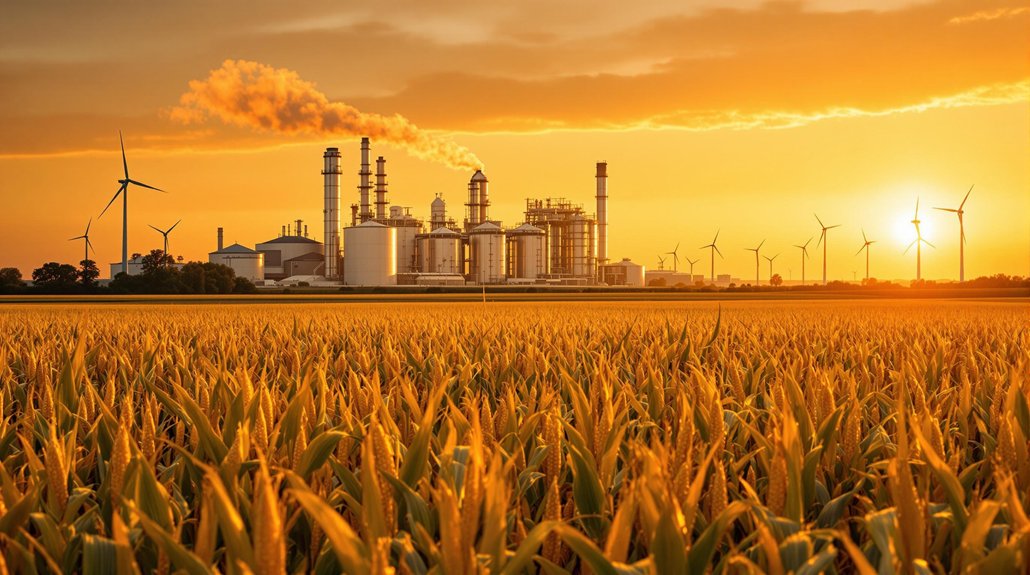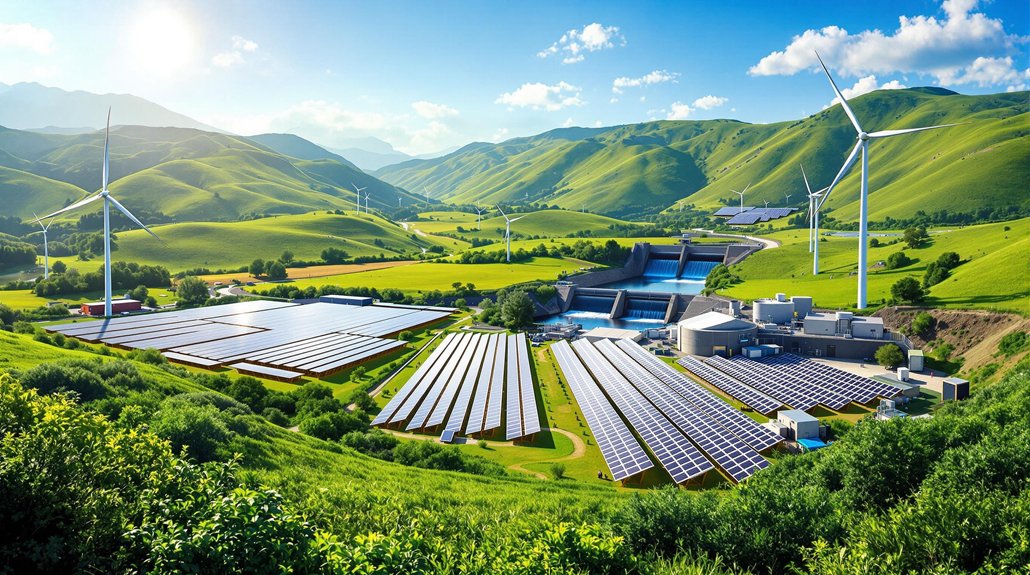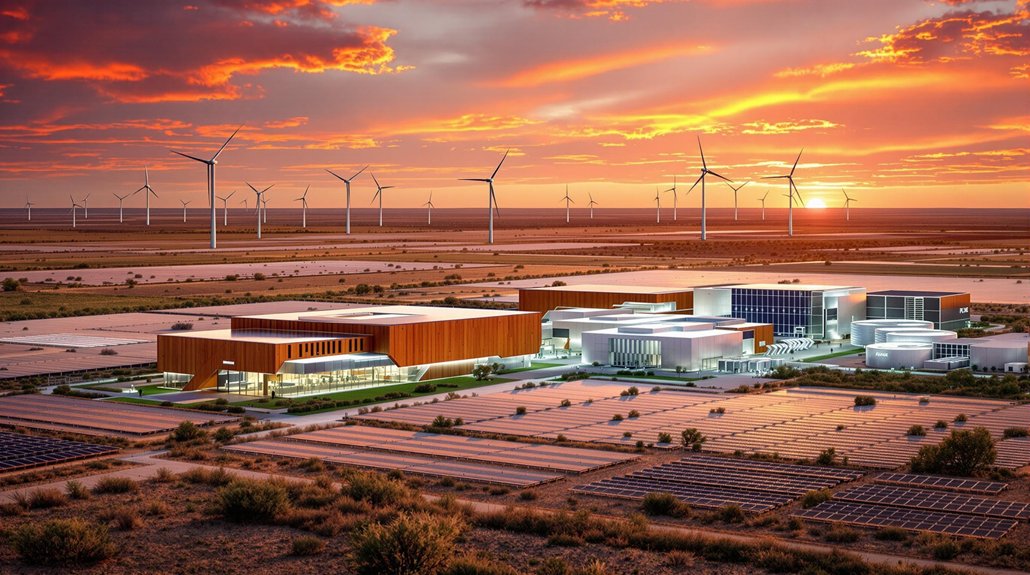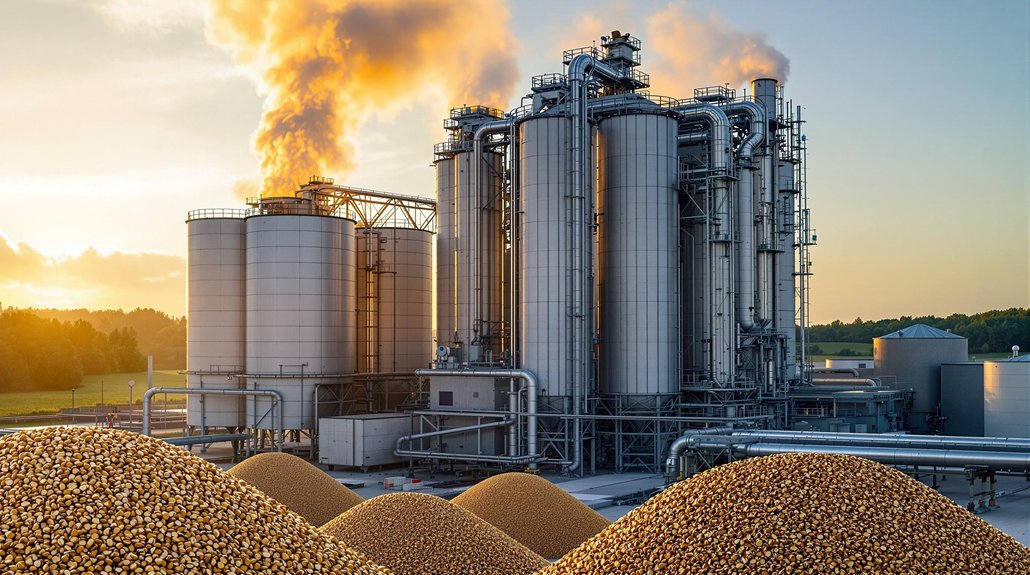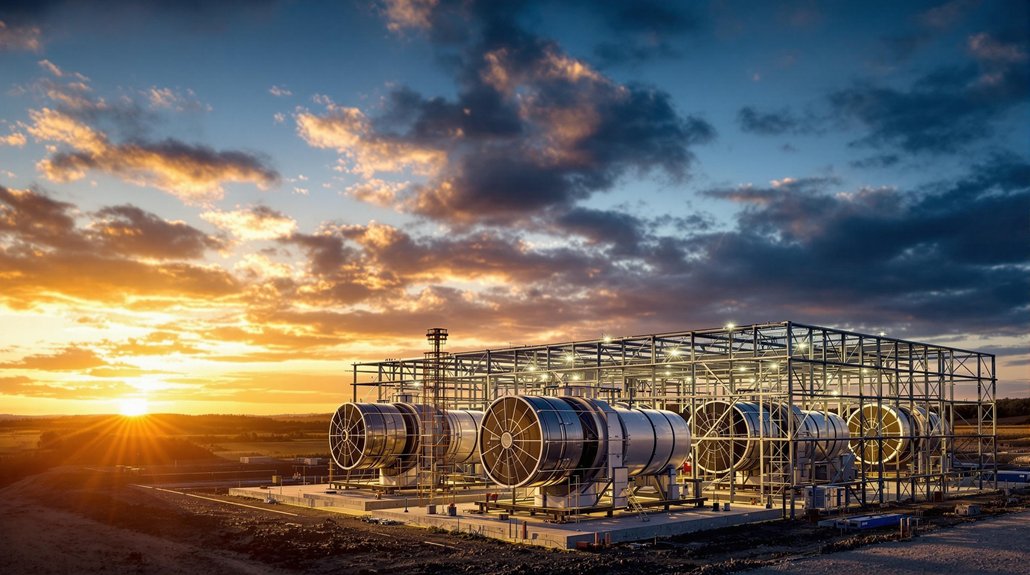Ethanol has quietly transformed America’s energy landscape over the past two decades. U.S. production jumped from 1.6 billion to 15 billion gallons between 2005 and 2019, creating jobs and stabilizing rural economies. It’s now a key player in reducing greenhouse gas emissions and boosting energy independence. The fuel isn’t just corn in a different form—it’s the result of advanced farming techniques and refining technologies. But what does this mean for America’s energy security?
While many Americans think of corn primarily as food, this versatile crop has sparked an energy transformation across the nation’s heartland. Since the Renewable Fuel Standard was enacted in 2005, ethanol production has quadrupled from 1.6 billion to 15 billion gallons by 2019. The United States now leads the world in ethanol production, with corn serving as the main ingredient.
This corn innovation has provided economic stability to rural communities. Ethanol creates jobs in both farming and biofuel industries, offering a lifeline to struggling farmers during periods of low farm income. The steady demand for corn helps stabilize prices, reducing market volatility and supporting infrastructure improvements in agricultural areas. The production of ethanol has been crucial in supporting rural communities that rely heavily on livestock production.
Ethanol production creates rural prosperity through stable farm incomes and expanded job opportunities beyond the fields.
Environmental benefits have emerged alongside economic gains. Corn ethanol produces 39% fewer greenhouse gas emissions than gasoline on average. When made in natural gas-powered refineries, emissions can be 43% lower. From 2005 to 2019, ethanol helped reduce carbon intensity in America’s fuel supply by 23%. Ethanol production has evolved from an energy sink to providing substantial net energy gains with modern methods generating 2.3 BTUs of ethanol from 1 BTU input.
Despite these advantages, corn ethanol faces significant challenges. Production requires substantial water and fertilizer inputs. Large-scale corn farming can lead to soil degradation and water pollution. Questions persist about balancing land use between growing food and fuel crops. Unlike solar energy which costs less in the long run, ethanol production requires ongoing feedstock expenses but offers reliable energy production without battery storage requirements.
Technology has played a vital role in addressing these concerns. Modern refineries operate more efficiently than ever before. Advanced farming methods produce higher corn yields with fewer resources. Scientists continue developing ethanol with even lower carbon footprints.
Most Americans encounter ethanol daily without realizing it. It’s blended into gasoline as E10 (10% ethanol) and increasingly as E15 (15% ethanol). These blends help reduce America’s dependence on imported oil while supporting domestic energy production.
As the nation works toward cleaner energy solutions, corn ethanol represents a significant bridge technology. While it can’t single-handedly achieve energy independence, it’s become an essential component of America’s evolving energy landscape.
